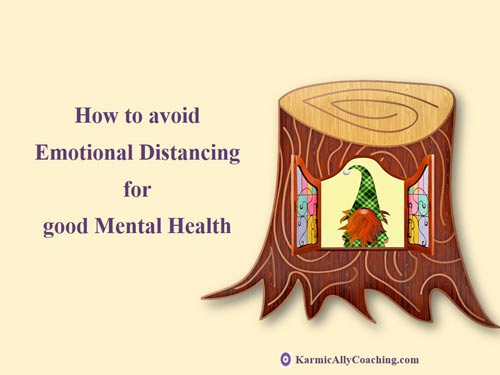
The best way to learn about leadership and other management concepts and practices is through case studies and seeing it being done hands on.
Who would have thought this COVID-19 pandemic would provide a living global case study and the leaders would be those who are leading their citizens on a peacetime war effort against an invisible enemy, a virus with no known cure?
As an Indian citizen, Prime Minister Narendra Modi is an incredible example of leadership and statesmanship who is leading from the front as well as supporting the efforts of other countries.
I’m still working out his leadership power base that compels a country of 1.3 billion people to go into complete lock down with only 4 hours’ notice for 21 days.
It’s definitely not just charisma. He has his finger on the pulse of the nation.
Why else would his second talk to the nation in the first week of the lock down get a record TRP on national television- not to mention how he’s keeping the morale of a nation going?
The ultimate compliment was the British Prime Minister using the same opening lines with addressing his nation!
One thing that I do know is he had a world class mentor in the form of former prime minister, freedom fighter and poet, late Atal Bihari Vajpayee.
We can all benefit from the right mentor in our careers and I’ve got the perfect resource to help you find the Right One.
One thing Mr Modi said struck a chord in many hearts – Social Distancing should not mean Emotional Distancing.
An infection outbreak is a stressful time that often requires the adoption of stringent but necessary measures.
During a pandemic, people are forced to self-isolate to curb the spread of the disease and prevent new infections. It is a critical aspect of mitigating the disease, and as such, everyone should play their role adequately.
Self-isolation has two objectives: To protect yourself and to protect others.
Knowing how to behave and act when one is alone or when they are among other people is essential. Therefore, you need to develop the right attitude and reflexes when self-isolating.
While maintaining limited contact with others, washing hands every 20 minutes, maintaining hygiene and self-monitoring is important, we must not forget that we are human and that quality cannot be lost.
We are social animals not accustomed to isolation and this affects our mental health.
There is another very important reason why I’m concerned about the impact of social distancing even though right now that seems to be the only way to control the spread of COVID-19 – the increase in suicides linked to the COVID-19 crisis.
Just in the last 24 hours, we’ve had reports of 2 suicides on national television. One was a COVID-19 patient who chose to end his life rather than face the fear of possible death from this virus.
Another person who was under quarantine wanted to go home despite doctors and nurses assuring him he would once the quarantine period was over. Imagine the state of mind of this young man in his 30’s that he choose to jump to his death from the 7th floor of the hospital.
If this is the psycho-social repercussion in otherwise healthy people who could not face isolation and fear of an uncertain future, then imagine an already vulnerable section of society that have prior mental health issues and the elderly?
It’s not just India, in an article that I read last night on the Scientific American website, my concerns are validated – COVID-19 is likely to lead to an increase in Suicides.
Hence for all intents and purposes, we must avoid Emotional Distancing.
Here’s what I suggest.
5 ways to avoid Emotional Distancing when you need to keep Social Distance
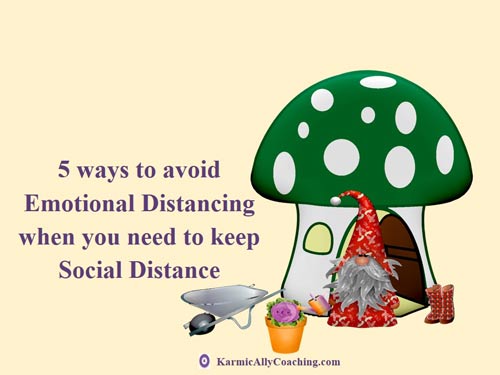
Keeping in Touch
I’m keeping in touch with friends either on the phone or via social media. If I find a good joke on Facebook, I acknowledge the source and share it forward. Making people smile when most of us are worried is a good deed.
When you’re getting in touch with people, make it your intention to truly connect with them and how they’re feeling. Ask questions, do active listening and listen more than you talk.
Let them know you have their undivided attention. If you’re on zoom or skype, make eye contact and share from the heart. Use your emotional intelligence skill to connect at a deeper level.
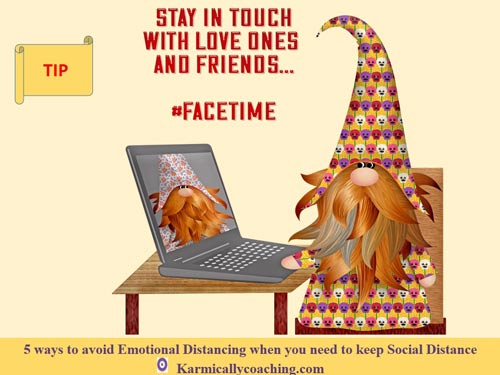
It’s a time when strong friendships and bonds can be forged.
I’ve personally seen a professional contact on LinkedIn turn into a supportive long distance friend all because our chat turned to managing senior citizen pets during lock down which led to lots of communications and sharing photos of our pets and generally giving each other a morale boost.
Thinking of vulnerable individuals
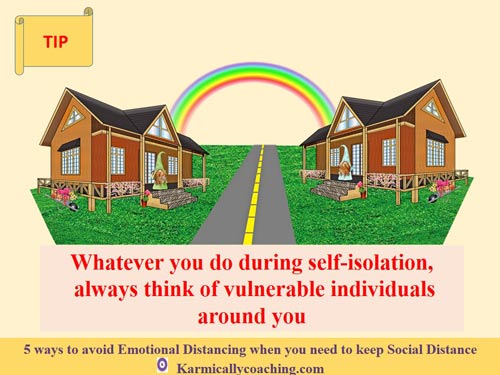
Whatever you do during self-isolation, always think of vulnerable individuals around you. Susceptible groups include people at the extreme ends of age and people suffering from chronic and pre-existing conditions like diabetes, asthma, etc.
Think of these people and try to put them first in everything you do during self-isolation, whether diagnosed with the infection or not.
I’m starting to learn about how many of my friends are in the high risk category now than I did earlier. It means we can be there for each other when required.
Seek help when needed
You should not hesitate to ask your healthcare provider for help if you have any problem or you are not sure about something. Self-isolation does not mean you should figure things out on your own.
If you develop a symptom, before you decide to self-medicate, ask someone else with authority and knowledge for advice and confirmation.
If you start to experience anxiety or start having fearful thoughts, reach out to a friend and chat or an online mental health service where you can talk to someone.
Maintaining a journal is also a good self-help tool to help you assess your state of mind and even discover more about yourself.
Stay informed
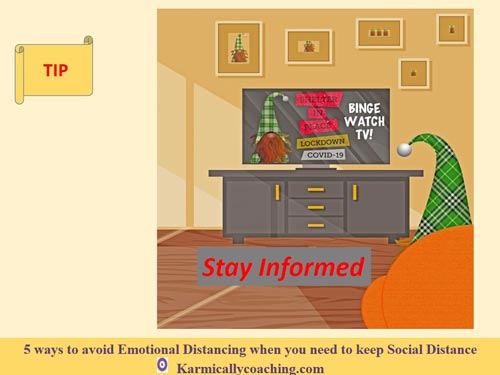
Make it a habit to always stay informed. Follow news updates on the outbreak and go beyond by reading scientific articles related to the outbreak. The more you know about the disease, the better you will be equipped to help fight it.
One thing though, always ensure that your sources are reliable and not hysteria creating fake news on social media.
Think Positive
While it is essential to stay informed about the progress of the pandemic, you should not let the news of growing number of cases or even deaths impact you negatively.
Remember that bad news always sells very well.
Do not get in their game. Be informed but do not be influenced by what you hear. Always keep a positive outlook on things and find ways to distract yourself.
All of these actions will help you maintain good mental health.
And if you want more guidance for self-management for good mental health, I’ve got you covered in my blog post How to keep good mental health in lock down.
Prime Minister Modi also possesses a skill that is useful for a national leader – Emotional Intelligence. Why not take a page from his book and check if you possess this leadership skill too?
What steps are you taking to stay grounded in these uncertain times?


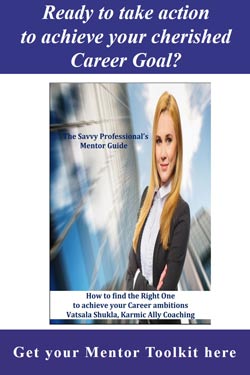
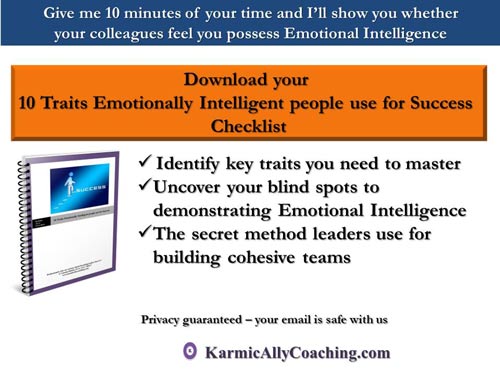

 I adhere to the Certified Coaches Alliance Code of Ethics and Standards. A copy is available on request.
I adhere to the Certified Coaches Alliance Code of Ethics and Standards. A copy is available on request.
 Let's Talk through the Connect Form:
Let's Talk through the Connect Form: